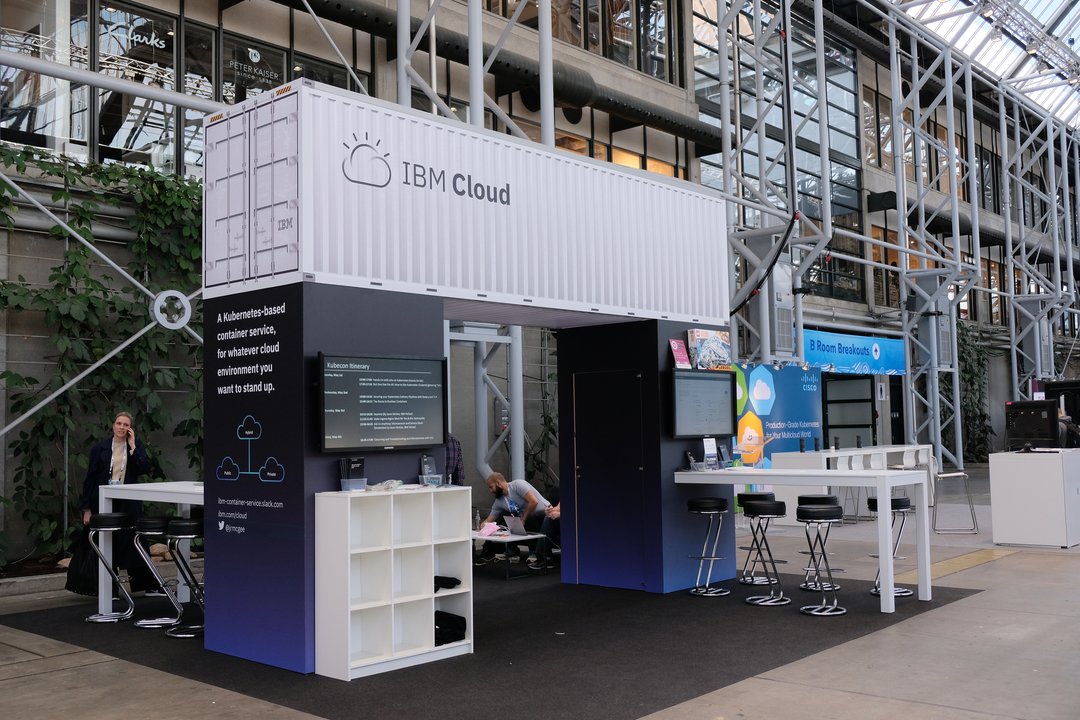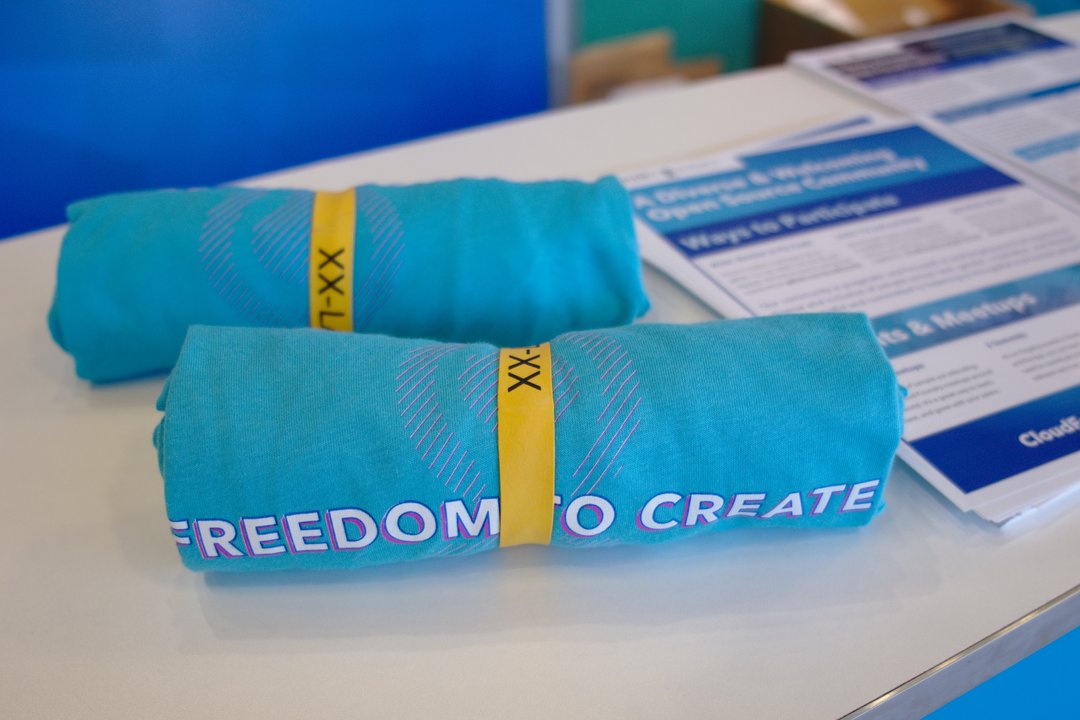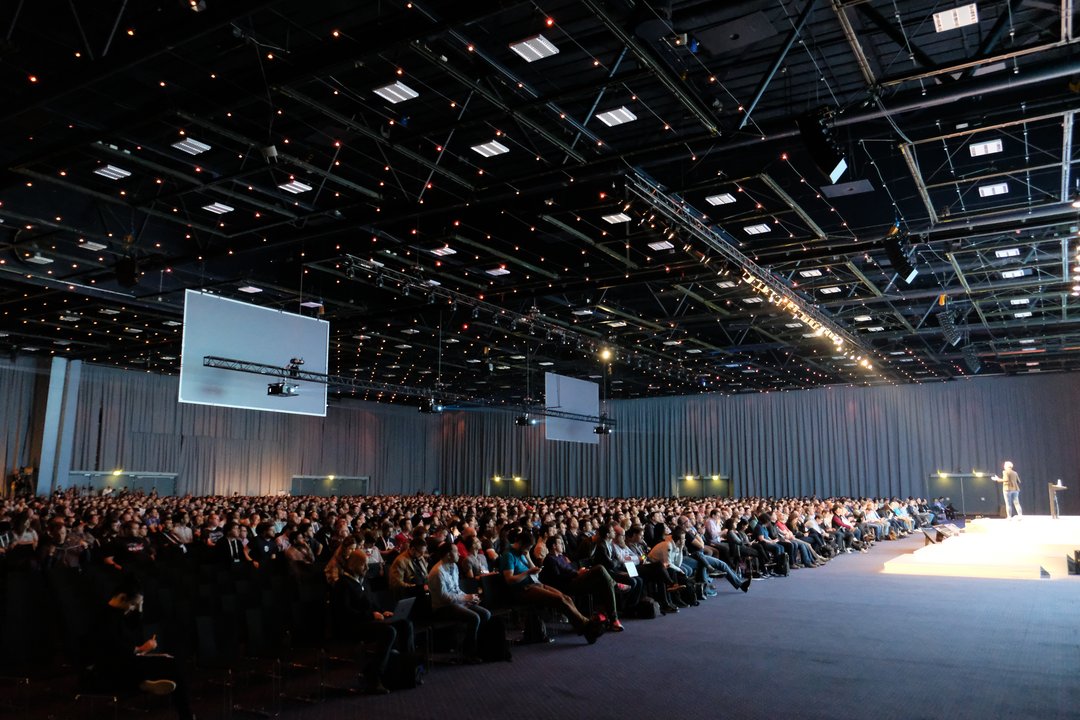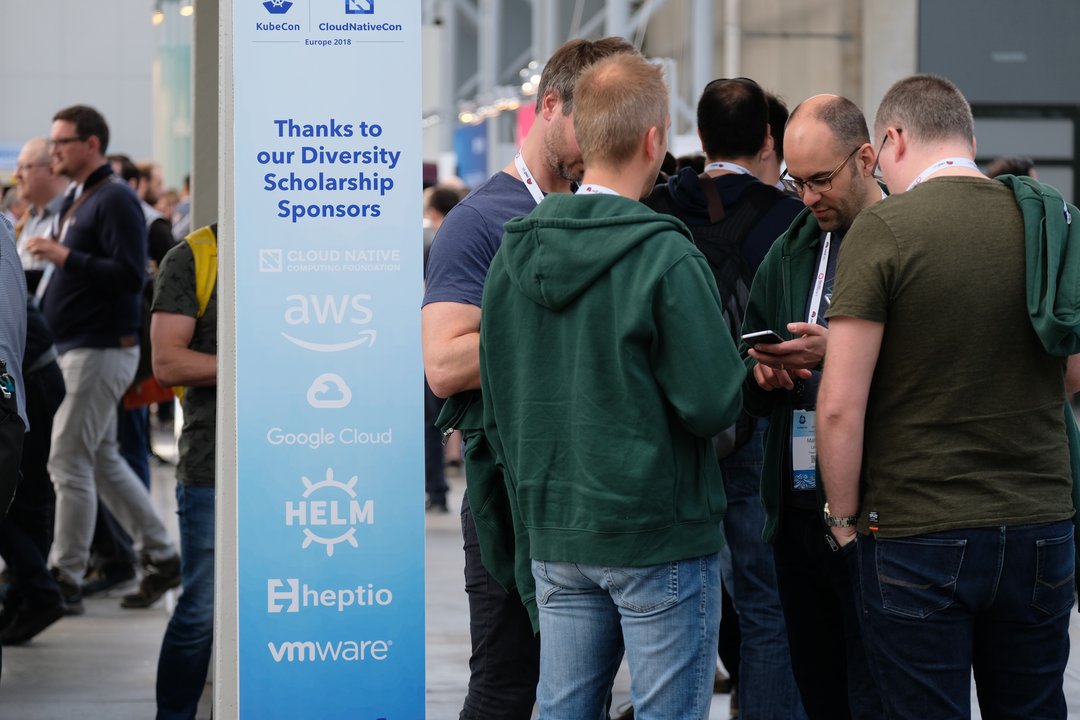Diversity, education, privilege and ethics in technology
This article is part of a series on KubeCon Europe 2018.
- Diversity, education, privilege and ethics in technology (this article)
- Autoscaling for Kubernetes workloads
- Updates in container isolation
- Securing the container image supply chain
- Easier container security with entitlements
This is a rant I wrote while attending KubeCon Europe 2018. I do not know how else to frame this deep discomfort I have with the way one of the most cutting edge projects in my community is moving. I see it as a symptom of so many things wrong in society at large and figured it was as good a way as any to open the discussion regarding how free software communities seem to naturally evolved into corporate money-making machines with questionable ethics.

Diversity and education
There is often a great point made of diversity at KubeCon, and that is something I truly appreciate. It's one of the places where I have seen the largest efforts towards that goal; I was impressed by the efforts done in Austin, and mentioned it in my overview of that conference back then. Yet it is still one of the less diverse places I've ever participated in: in comparison, Pycon "feels" more diverse, for example. And then, of course, there's real life out there, where women constitute basically half the population, of course. This says something about the actual effectiveness diversity efforts in our communities.
The truth is that contrary to programmer communities, "operations" knowledge (sysadmin, SRE, DevOps, whatever it's called these days) comes not from institutional education, but from self-learning. Even though I have years of university training, the day to day knowledge I need in my work as a sysadmin comes not from the university, but from late night experiments on my personal computer network. This was first on the Macintosh, then on the FreeBSD source code of passed down as a magic word from an uncle and finally through Debian consecrated as the leftist's true computing way. Sure, my programming skills were useful there, but I acquired those before going to university: even there teachers expected students to learn programming languages (such as C!) in-between sessions.
The real solutions to the lack of diversity in our communities not only comes from a change in culture, but also real investments in society at large. The mega-corporations subsidizing events like KubeCon make sure they get a lot of good press from those diversity programs. However, the money they spend on those is nothing compared to tax evasion in their home states. As an example, Amazon recently put 7000 jobs on hold because of a tax the city of Seattle wanted to impose on corporations to help the homeless population. Google, Facebook, Microsoft, and Apple all evade taxes like gangsters. This is important because society changes partly through education, and that costs money. Education is how more traditional STEM sectors like engineering and medicine have changed: women, minorities, and poorer populations were finally allowed into schools after the epic social struggles of the 1970s finally yielded more accessible education. The same way that culture changes are seeing a backlash, the tide is turning there as well and the trend is reversing towards more costly, less accessible education of course. But not everywhere. The impacts of education changes are long-lasting. By evading taxes, those companies are keeping the state from revenues that could level the playing field through affordable education.
Hell, any education in the field would help. There is basically no sysadmin education curriculum right now. Sure you can follow a Cisco CCNA or MSCE private trainings. But anyone who's been seriously involved in running any computing infrastructure knows those are a scam: that will tie you down in a proprietary universe (Cisco and Microsoft, respectively) and probably just to "remote hands monkey" positions and rarely to executive positions.
Velocity
Besides, providing an education curriculum would require the field to slow down so that knowledge would settle down and trickle into a curriculum. Configuration management is pretty old, but because the changes in tooling are fast, any curriculum built in the last decade (or even less) quickly becomes irrelevant. Puppet publishes a new release every 6 month, Kubernetes is barely 4 years old now, and is changing rapidly with a ~3 month release schedule.
Here at KubeCon, Mark Zuckerberg's mantra of "move fast and break things" is everywhere. We call it "velocity": where you are going does not matter as much as how fast you're going there. At one of the many keynotes, Abby Kearns from the Cloud Foundry Foundation boasted at how Home Depot, in trying to sell more hammers than Amazon, is now deploying code to production multiple times a day. I am still unclear as whether this made Home Depot actually sell more hammers, or if it's something that we should even care about in the first place. Shouldn't we converge over selling less hammers? Making them more solid, reliable, so that they are passed down from generations instead of breaking and having to be replaced all the time?

We're solving a problem that wasn't there in some new absurd faith that code deployments will naturally make people happier, by making sure Home Depot sells more hammers. And that's after telling us that Cloud Foundry helped the USAF save 600M$ by moving their databases to the cloud. No one seems bothered by the idea that the most powerful military in existence would move state secrets into a private cloud, out of the control of any government. It's the name of the game, at KubeCon.

In his keynote, Alexis Richardson, CEO of Weaveworks, presented the toaster project as an example of what not to do. "He did not use any sourced components, everything was built from scratch, by hand", obviously missing the fact that toasters are deliberately not built from reusable parts, as part of the planned obsolescence design. The goal of the toaster experiment is also to show how fragile our civilization has become precisely because we depend on layers upon layers of parts. In this totalitarian view of the world, people are also "reusable" or, in that case "disposable components". Not just the white dudes in California, but also workers outsourced out of the USA decades ago; it depends on precious metals and the miners of Africa, the specialized labour of the factories and intricate knowledge of the factory workers in Asia, and the flooded forests of the first nations powering this terrifying surveillance machine.
Privilege

Staying in an hotel room for a week, all expenses paid, certainly puts things in perspectives. Rarely have I felt more privileged in my entire life: someone else makes my food, makes my bed, and cleans up the toilet magically when I'm gone. For me, this is extraordinary, but for many people at KubeCon, it's routine: traveling is part of the rock star agenda of this community. People get used to being served, both directly in their day to day lives, but also through the complex supply chain of the modern technology that is destroying the planet.

The nice little boxes and containers we call the cloud all abstract this away from us and those dependencies are actively encouraged in the community. We like containers here and their image is ubiquitous. We acknowledge that a single person cannot run a Kube shop because the knowledge is too broad to be possibly handled by a single person. While there are interesting collaborative and social ideas in that approach, I am deeply skeptical of its impact on civilization in the long run. We already created systems so complex that we don't truly know who hacked the Trump election or how. Many feel it was, but it's really just a hunch: there were bots, maybe they were Russian, or maybe from Cambridge? The DNC emails, was that really Wikileaks? Who knows! Never mind failing close or open: the system has become so complex that we don't even know how we fail when we do. Even those in the highest positions of power seem unable to protect themselves; politics seem to have become a game of Russian roulette: we cock the bot, roll the secret algorithm, and see what dictator will shoot out.
Ethics
All this is to build a new Skynet; not this one or that one, those already exist. I was able to pleasantly joke about the AI takeover during breakfast with a random stranger without raising as much as an eyebrow: we know it will happen, oh well. I've skipped that track in my attendance, but multiple talks at KubeCon are about AI, TensorFlow (it's opensource!), self-driving cars, and removing humans from the equation as much as possible, as a general principle. Kubernetes is often shortened to "Kube", which I always think of as a reference to the Star Trek Borg) all mighty ship, the "cube". This might actually make sense given that Kubernetes is an open source version of Google's internal software incidentally called... Borg. To make such fleeting, tongue-in-cheek references to a totalitarian civilization is not harmless: it makes more acceptable the notion that AI domination is inescapable and that resistance truly is futile, the ultimate neo-colonial scheme.

The "hackers" of our age are building this machine with conscious knowledge of the social and ethical implications of their work. At best, people admit to not knowing what they really are. In the worse case scenario, the AI apocalypse will bring massive unemployment and a collapse of the industrial civilization, to which Silicon Valley executives are responding by buying bunkers to survive the eventual roaming gangs of revolted (and now armed) teachers and young students coming for revenge.
Only the most privileged people in society could imagine such a scenario and actually opt out of society as a whole. Even the robber barons) of the 20th century knew they couldn't survive the coming revolution: Andrew Carnegie built libraries after creating the steel empire that drove much of US industrialization near the end of the century and John D. Rockefeller subsidized education, research and science. This is not because they were humanists: you do not become an oil tycoon by tending to the poor. Rockefeller said that "the growth of a large business is merely a survival of the fittest", a social darwinist approach he gladly applied to society as a whole.
But the 70's rebel beat offspring, the children of the cult of Job, do not seem to have the depth of analysis to understand what's coming for them. They want to "hack the system" not for everyone, but for themselves. Early on, we have learned to be selfish and self-driven: repressed as nerds and rejected in the schools, we swore vengeance on the bullies of the world, and boy are we getting our revenge. The bullied have become the bullies, and it's not small boys in schools we're bullying, it is entire states, with which companies are now negotiating as equals.
The fraud

And that is the ultimate fraud: to make the world believe we are harmless little boys, so repressed that we can't communicate properly. We're so sorry we're awkward, it's because we're all somewhat on the autism spectrum. Isn't that, after all, a convenient affliction for people that would not dare to confront the oppression they are creating? It's too easy to hide behind such a real and serious condition that does affect people in our community, but also truly autistic people that simply cannot make it in the fast-moving world the magical rain man is creating. But the real con is hacking power and political control away from traditional institutions, seen as too slow-moving to really accomplish the "change" that is "needed". We are creating an inextricable technocracy that no one will understand, not even us "experts". Instead of serving the people, the machine is at the mercy of markets and powerful oligarchs.
A recurring pattern at Kubernetes conferences is the KubeCon chant where Kelsey Hightower reluctantly engages the crowd in a pep chant:
When I say 'Kube!', you say 'Con!'
'Kube!' 'Con!' 'Kube!' 'Con!' 'Kube!' 'Con!'
Cube Con indeed...
I wish I had some wise parting thoughts of where to go from here or how to change this. The tide seems so strong that all I can do is observe and tell stories. My hope is that the people that need to hear this will take it the right way, but I somehow doubt it. With chance, it might just become irrelevant and everything will fix itself, but somehow I fear things will get worse before they get better.


Thank you for putting this conference in a higher perspective. Yes the social context of what software production does matter.
A friend referred to an article from The Atlantic, The 9.9 Percent Is the New American Aristocracy that goes much deeper in some of the causes of my discomfort:
Also, I want to thank everyone for the excellent feedback that was provided and, incidentally, mention that the space here is not a free-for-all, totally free speech zone. This is my blog and I decide which comments get published. I fully reserve the right to remove trollish comments and I have very little tolerance for those these days. You have the right to free speech in your own spaces, but here should be a safe space for everyone, and that does mean I may err on the side of censorship. Sorry to bring this up, but I already had to remove one such comment and wish to avoid any sort of escalation.
Community colleges in Arizona and California do teach system administration. Arizona has had an associates degree in Linux system administration for over a decade. While the program I taught in is an offshoot to Cisco Networking Academy classes, Cisco did not provide any educational resources for the GNU/Linux classes. ( Full disclosure: I did not realize when I started teaching part-time that the GNU/Linux classes were part of a Cisco Networking Academy and my day job was as a database developer for the non-profit behind the academies )
I was an instructor for many years and many of my degree students are doing well in system administration.
In regards to "move fast and break things", Friday Cory Doctorow recommended we should instead "Be thoughtful and consider human circumstances" during a panel at Phoenix Comic Fest
Out of sheer coincidence, a friend asked me this week to do my (now usual) presentation in their class. The course is called "Informatique et société" and is given at UQAM to computer science students, as an general philosophy / ethics class.
I often go there to talk about free software, my experience working at Koumbit and so on, but this time around I had some other material to give, so I gave an ardent talk based on this article which was met with a round of applause and heated debate about whether those problems were bound to human nature (I don't think so), what we can actually do about it (just do the right thing, damnit) and what kind of ethical decisions or projects people get involved in (some students help community groups with their website, others get involved in free software).
We talked about self-driving cars and the trolley problem (why are people on the track in the first place? why don't we just get rid of cars instead?), about social networking (people were just as isolated in the bus when they were reading their newspapers a century ago, but social media is engineered to create addiction, craving, and filter bubbles) and many more stuff than I can related here.
It was fun.
Slides are available in this repository.